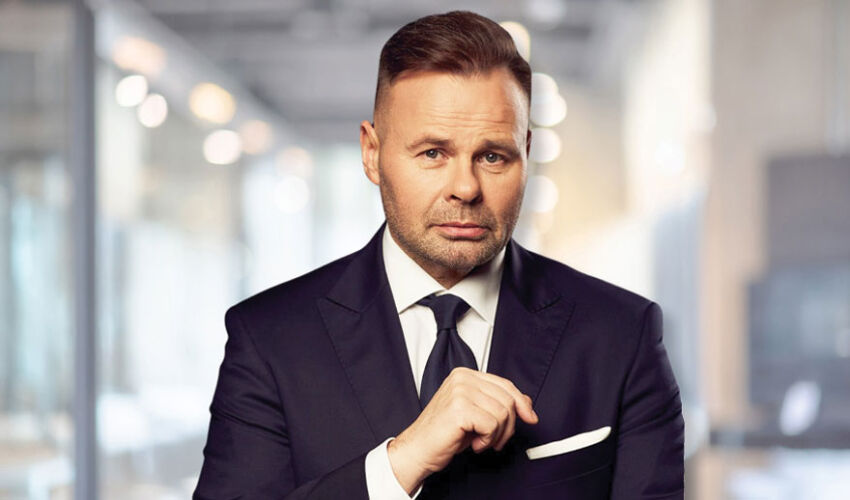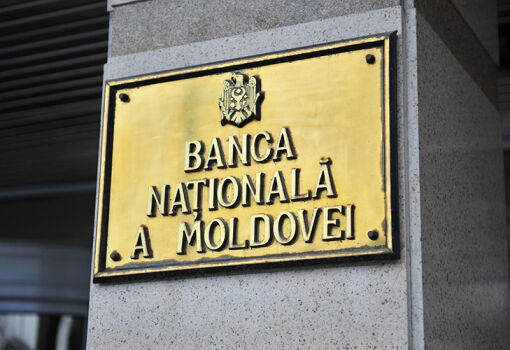
Михал Мержеевский
Mr. Mierzejewski, you are a member of the top management of the transnational corporation PMI. What brought you to the company, and what is your area of responsibility today?
I joined PMI over 20 years ago, after working at the Polish Investment Agency. At that time, I was actively involved in making Poland attractive to international capital and saw how investments change the society. I had always been inspired by the opportunity to be part of transformation processes, which is why I chose PMI. Currently, I am responsible for eight key PMI markets in North-Eastern Europe: Poland, Ukraine, the Czech Republic, Slovakia, Moldova, Lithuania, Latvia and Estonia.
Moldova joined this cluster in 2023, and this was our conscious move. We see it as part of the European family not only geographically: it is a country with a sustainable growth potential, and our presence here is not just a commercial decision, but an element of a broader strategy.
In 2024, PMI’s revenue from smokeless products reached a record $15 billion. What is the reason for this result?
Last year was a turning point for us. Not only because we achieved impressive financial results, but also because we continued to transform the company – we are changing not just the portfolio, but the entire tobacco industry. I would like to note that 40% of our total revenue came from smoke-free products. This means that millions of people around the world have switched to innovative alternatives.
It is important for us to follow our global goal – a smoke-free future. We continue to invest in the smoke-free category, and these efforts have been appreciated by authoritative global government agencies.
For example, this year the US Food and Drug Administration (FDA) approved the sale of Philip Morris International nicotine pouches on the American market. This is an unprecedented case: the FDA approved the sale of such a product for the first time. Five years ago, the FDA issued permission to sell our tobacco heating system as a product with reduced exposure. And for PMI, this is not just a commercial success, but a sign of recognition of the scientific approach and quality that the company strives for.
PMI is actively investing in Central Europe. Why are you concentrating your resources in this region?
Europe is a mature market, with a developed infrastructure and a sustainable approach to legislation. Here we see potential for further growth, transformation and new investments. Since 2008, PMI has invested more than $14 billion in research, development and commercialization of smoke-free products, and most of this investment has been in Europe. We have 11 manufacturing plants here, 7 of which produce tobacco sticks for the tobacco heating system. But above all, our main investment in Europe is in people and their talent. You can have a flawless product, but without people, a dedicated team, there is no chance of financial and corporate success. For us, people are very important. But people need jobs, so we invest in factories, in new technologies and science.
Considering this background, PMI’s investments in Moldova look atypical: a small market, high competition, illicit trade…
Perhaps. But it is precisely such markets that become turning points. I would like to emphasize that we do not measure the importance of a country by sales volume. Moldova is a strategically important point on the map of Europe. It is a crossroads of cultures, transport routes and human resources. The country is going through a period of rapid modernization: we see the strengthening of key institutions, digitalization, and public administration reform. The authorities demonstrate a real will for European integration, and this affects the perception of foreign capital.
We have launched production here that provides the market with local products, but the possibility of exporting to Romania, Ukraine and other countries is also possible. Moreover, we actively promote Moldova’s investment potential at international forums, bring new investors here and demonstrate that it is possible to build a sustainable and stable business here.
I am confident that economic development and investment inflow will accelerate when the war in Ukraine ends. Therefore, I believe that Moldova is on the verge of an economic breakthrough.
There is an opinion among investors that the Moldovan market is one of the most heavily regulated. Is it true?
We work in 180 countries, and I can say with confidence: for the tobacco business, Moldova is one of the most strictly regulated markets in Europe, from product imports to trade and communications. But the question the Government should ask itself is what results have they achieved for the society, because excessive regulation sometimes has the opposite effect. Bans create difficulties for consumers. People cannot get reliable information about science-based less harmful alternatives, and as a result, they continue to smoke cigarettes. We are not asking for concessions – we are asking for dialogue. And we are ready to be partners with the state: developing innovations, scientific assessment, monitoring sales to prevent consumption among minors.
I would like to note that the dialogue with the authorities in each country is different. But each country should have a common interest – to act for the benefit of society.
Why should the Moldovan authorities listen to an investor like PMI? What exactly have you brought to the Moldovan economy?
In almost all markets, PMI is one of the largest taxpayers. In Moldova, in 2024, total payments from the tobacco business to the state budget amounted to about 5.5 billion lei, of which 40% were provided by PMI. In addition to such factors as job creation and investments in infrastructure (import, distribution, trade), we launched production at the local Tutun-CTC factory, this project is estimated at over $3 million. In the markets where we have production, including Moldova, this is a direct advantage for the local economy.
Let me draw a parallel between Moldova and Lithuania, after its exit from the USSR, we were the first foreign investors there, and this gave a signal to other international players to enter this market. Today, Lithuania is our flagship. We invested in Klaipeda, handed over the old production to the city for a symbolic 1 litas. Now it is called the Klaipeda Factory of Culture, it is preserved and serves for the city’s social and cultural activities. At the same time, we built a new high-tech production from scratch. This created a powerful wave of trust among foreign businesses.
Poland is another example. Investments in Krakow in 2023 in the amount of over $230 million created hundreds of new jobs. In Ukraine, despite the war, we invested $30 million in a new factory in the Lviv region, and the region raised the investment potential. We also directed new investments to Otopeni (Romania), Kutna Hora (Czech Republic), Niš (Serbia). These factories have become the flagships of our transformation and symbols of trust between the business and the government.
How do you assess the state of the illegal tobacco market in Moldova?
The fight against illegal trade is not a fight for business, it is a fight for justice. Each illegal product is an unpaid tax, undermined authority of the state and a threat to the health of the consumer. In Moldova, the IPSOS research company estimates the shadow market at 9.8% (September-October 2024), which is 1.9 percentage points less than the same period in 2023, and this is the first decrease since 2022, when the market for contraband and counterfeit tobacco products was growing steadily.
I would like to highlight that PMI is a leader in the fight against the illegal market due to our unique methods of analysis. For example, we conduct regular market research to understand the volume of illegal turnover. We share information with customs, police, prosecutor’s office, provide warehouse capacity for the storage and disposal of seized goods. This approach has proven its effectiveness in Poland, Ukraine, Lithuania. Where the authorities cooperate with us, the shadow share falls. For example, in Ukraine over the past year the illegal market has shrunk from 24% to 16%, and in Poland – from 25% to 4%.
PMI’s portfolio includes electronic cigarettes. Why don’t you bring them to the Moldovan market?
We have strong positions in vapes in many markets – Poland, the Czech Republic, Italy. But Moldova has too harsh restrictions on market regulation. At the same time, imports of cheap Chinese devices are thriving, often without labeling, without control, with aggressive marketing aimed at young people. We cannot compete with those who operate outside the law. That’s why we don’t enter a category that has no prospects in such conditions.
Speaking about your most capital-intensive smokeless product – IQOSs, how much does it justify the investment made in it?
In addition to the fact that globally this category accounted for 40% of the company’s net profit and 42% of gross profit, its growth rate exceeds 20%. This innovative product is available in 95 markets. And practice shows: the more developed the country, the higher the share of users of tobacco heating devices. Thus, in Vilnius, the market share of smokeless products is more than 50%, in Budapest – almost 41%, in Rome, Athens, Bratislava – about 30%.
Speaking about volumes – Ukraine ranks second in Europe, followed by Poland. Globally, Japan is the leader. These figures are the result of complex work: balanced regulation, information, support. The higher the trust in innovation, the faster the transformation. According to our estimates, in 2024 the number of adult users of our smokeless products will increase to 38.6 million (+5 million), with IQOSs accounting for 70% or 32.2 million consumers.
We are already seeing not only the need for investment, but also the social effect. The smoking related disease rate in countries with a large share of alternatives is falling. We could have remained the largest cigarette manufacturer. But we have chosen a difficult path, and we are proud of it.
We must be honest: there is no ideal product. But we offer a choice – responsible, scientifically based, transparent. These are investments in tomorrow, and this is the path to the better. We are ready to go through it together with consumers, governments, experts. If everyone takes one step forward, we will change this complex market forever.






